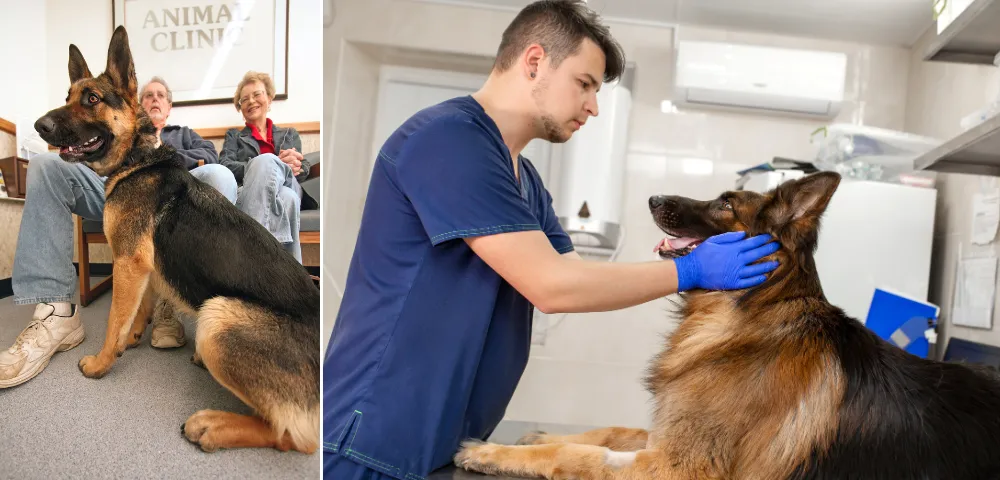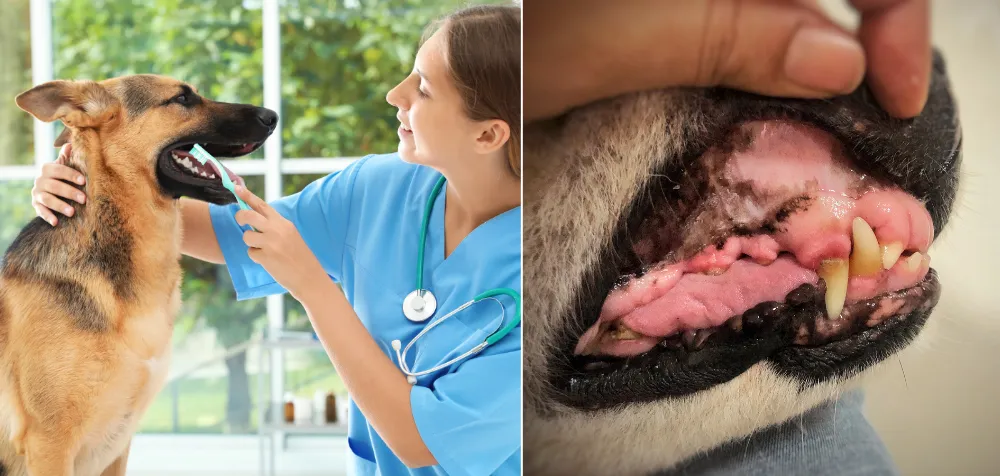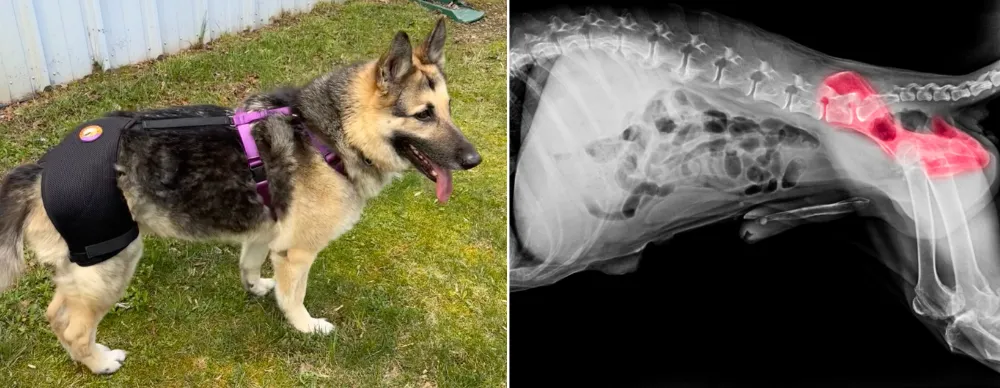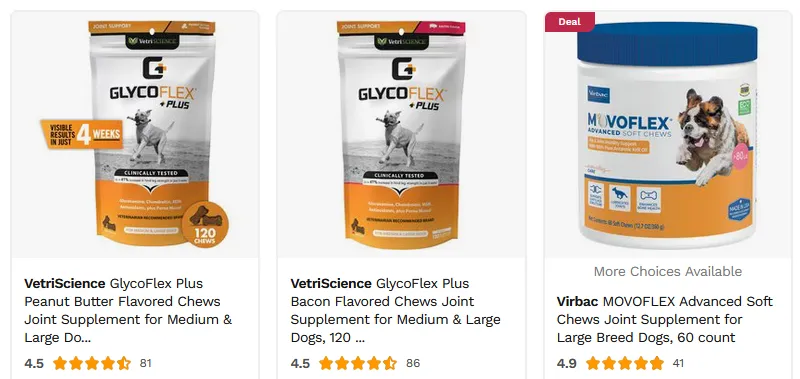Would you like to know about the average lifespan of a German Shepherd and how it can be extended? You’re in the right place.
The average lifespan of a German Shepherd typically ranges from 9 to 13 years, although this can vary depending on various factors such as genetics, health management, and lifestyle.
| Genetics plays a significant role in German Shepherd’s lifespan, as dogs from lines with a history of longevity and fewer health issues often live longer. |
Topics
- How to Extend the Lifespan of German Shepherd
- Regular Veterinary Check-ups
- Balanced Diet and High-Quality Food
- Proteins
- Carbohydrates
- Healthy Fats
- Vitamins and Minerals
- Dog Food Brands Containing High-Quality Ingredients
- Routine Exercise and Mental Stimulation
- Dental Care
- Preventive Measures Against Parasites
- Spaying or Neutering
- Understanding Genetic Predispositions
- Environment
- Weight Management
- Join Supplements
- Noticing the Signs of Aging
- Conclusion
RELATED
- How to Raise a German Shepherd Puppy at Home
- How Does Selective Breeding Affect Dog’s Appearance
- Common German Shepherd Health Myths Debunked
- Training German Shepherds for Families With Young Children
- German Shepherd Running Abilities: Speed, Distance, Endurance
|| DON’T MISS! Today’s Deals on Chewy – Pet Foods, Products, Supplies, Toys, and more. Additionally, visit our Etsy & Online Store for German Shepherd merchandise.
How to Extend the Lifespan of a German Shepherd
By implementing these comprehensive care strategies, the lifespan of a German Shepherd can potentially be extended, allowing for more years of companionship and joy.
01. Regular Veterinary Check-ups
First and foremost, regular veterinary check-ups are crucial as they enable early detection and prevention of potential health issues. Vaccination schedules should be adhered to safeguard against infectious diseases.
Essential vaccinations include those for rabies, distemper, parvovirus, and adenovirus, which are typically administered in a series starting when the puppy is 6 to 8 weeks old. Booster shots are necessary to maintain immunity throughout the dog’s life. Additional vaccines, such as those for kennel cough and Lyme disease, may be recommended based on the dog’s lifestyle and exposure risks.

02. Balanced Diet and High-Quality Food
Providing your dog with nutrient-rich, premium food supports their overall health and helps prevent common health issues. A balanced diet should include the right mix of proteins, fats, carbohydrates, vitamins, and minerals tailored to the specific needs of German Shepherds.
Avoiding low-quality fillers and artificial additives reduces the risk of allergies and digestive problems.
Consistent access to fresh water and regular feeding schedules further contribute to their well-being. Investing in high-quality food not only boosts their immunity and energy levels but also ensures they maintain a healthy weight, which is crucial for their joint health and longevity.

Here are some examples of high-quality foods and dietary components beneficial for German Shepherds:
01. Proteins
- Chicken: A lean source of protein that supports muscle development and energy levels.
- Salmon: Rich in omega-3 fatty acids, it promotes a healthy coat and skin.
- Lamb: An alternative protein source that is often easier on sensitive stomachs.
02. Carbohydrates
- Sweet Potatoes: A nutritious source of fiber and vitamins.
- Brown Rice: Provides energy and is gentle on the digestive system.
03. Healthy Fats
- Fish Oil: Supports joint health and provides essential fatty acids.
- Flaxseed: Contains omega-3 and omega-6 fatty acids, beneficial for coat health.
04. Vitamins and Minerals
- Carrots: High in beta-carotene, good for vision and immune health.
- Blueberries: Packed with antioxidants that support overall health.
Dog Food Brands Containing High-Quality Ingredients
Below are some brands known for their high-quality ingredients and balanced nutrition, which can help support the health and longevity of your German Shepherd.
- Nom Nom Fresh Dog Food offers fresh, human-grade ingredients with high protein content, tailored to meet the nutritional needs of German Shepherds.
- Iams ProActive Health Adult Large Breed Dry Dog Food is formulated for large breeds, providing bone and joint support with chicken as the primary ingredient.
- Instinct Raw Boost Grain-Free Dry Dog Food contains real duck and freeze-dried raw ingredients, along with probiotics for digestive health.
- Taste of the Wild Southwest Canyon Grain-Free Dry Dog Food features a grain-free formula with beef, wild boar, and fish meal, infused with probiotics and antioxidants.
- Blue Buffalo Wilderness Salmon Recipe Grain-Free Dry Dog Food includes fresh salmon as the primary protein source, along with healthy carbs and fresh fruits and vegetables.

03. Routine Exercise and Mental Stimulation
Incorporating routine exercise not only maintains a healthy weight but also promotes cardiovascular health and prevents obesity-related issues. Mental stimulation through training and socialization keeps their minds sharp and reduces stress, contributing to overall well-being.
Routine exercises for German Shepherds include brisk daily walks, playing fetch, and agility training to keep them physically fit and mentally stimulated. Incorporating obedience training and interactive toys also helps maintain their sharp minds and overall well-being.
| Cardiovascular health refers to the proper functioning and wellness of the heart and blood vessels. |
| Obesity-related issues in dogs include a higher risk of developing serious health problems such as diabetes, heart disease, arthritis, and decreased mobility. |

RELATED
- German Shepherd Energy Levels by Age | Activity Needs
- Best Way to Take German Shepherd for Walk: A Complete Guide
- What are Challenges of Training & Raising German Shepherd?
- What is the Average Intelligence of German Shepherds?
- How to Determine Most Desirable Traits in German Shepherd?
- How Do German Shepherds Handle Hot Weather
- Ultimate Guide to German Shepherds Water Activities
- Breeding Frequency for Male German Shepherds
04. Dental Care
Dental care is often overlooked but plays a pivotal role in preventing periodontal disease, which can affect internal organs. Brushing their teeth regularly and providing dental treats can minimize dental problems.
| Periodontal disease in dogs is a serious gum infection that damages the soft tissue and bone supporting the teeth. If left untreated, it can lead to tooth loss and other health issues, including infections that can spread to the heart and kidneys. |
Related: German Shepherd Teeth Problems: Causes, Prevention, Treatment

05. Preventive Measures Against Parasites
Preventative measures against parasites like fleas, ticks, and worms are crucial for maintaining the health and well-being of German Shepherds. These measures should always be implemented under the guidance of a veterinarian to ensure their safety and effectiveness.
Regular use of veterinarian-recommended flea and tick preventatives, such as topical treatments, collars, or oral medications, can protect your dog from infestations and the diseases these parasites may carry. Deworming schedules tailored to your dog’s specific needs, along with routine fecal exams, help keep internal parasites away.
| Topical treatments are medications applied directly to the skin to prevent or treat conditions like fleas, ticks, and skin infections in dogs. They provide targeted relief and protection. |
| Deworming in dogs is the process of administering medication to eliminate internal parasites like worms from a dog’s system (digestive system, circulatory system, respiratory system, and immune system). |

06. Spaying or Neutering
Spaying or neutering a German Shepherd can positively impact its lifespan by significantly reducing the risks of certain cancers and diseases. For female dogs, spaying helps prevent uterine infections and reduces the risk of breast cancer, which is fatal in about 50% of dogs.
Neutering male dogs eliminates the possibility of testicular cancer and decreases the likelihood of prostate problems. Additionally, these procedures can lead to a reduction in behavioral issues such as roaming, aggression, and marking, which in turn reduces the chances of injury or accidents.

07. Understanding Genetic Predispositions
Understanding German Shepherds’ genetic predispositions to conditions like hip dysplasia, degenerative myelopathy, and bloat is crucial for early intervention and effective management.
Hip dysplasia, a common hereditary condition, can lead to arthritis and mobility issues, but early diagnosis and treatment can significantly improve a dog’s quality of life.
Related: Hip Dysplasia in German Shepherds | Causes & Prevention

Degenerative myelopathy, a progressive neurological disorder, also requires prompt attention to slow its progression and maintain a good quality of life for affected dogs.
Related: Degenerative Myelopathy in German Shepherds | Causes & Prevention
Bloat, or gastric dilatation-volvulus, is a life-threatening condition requiring immediate veterinary care. Awareness of these genetic risks allows owners to implement preventive measures, such as maintaining a healthy weight, providing joint supplements, and scheduling regular veterinary check-ups.
08. Environment
Maintaining a stable environment with minimized stressors is crucial for a dog’s mental health. Environmental enrichment through toys and interactive games keeps them engaged and reduces anxiety, fostering a sense of well-being.
A safe and comfortable living space helps prevent injuries and ensures a stress-free life. Additionally, avoiding exposure to secondhand smoke and environmental toxins is advisable to protect their health.
| Secondhand smoke is the involuntary inhalation of smoke from someone else’s smoking. It contains harmful chemicals and can cause health issues for non-smokers and pets, such as respiratory problems and an increased risk of certain cancers. Keeping the environment smoke-free is crucial for the health of both humans and animals. |

09. Weight Management
Weight management is critical for the overall health and longevity of German Shepherds. Obesity (excessive fat accumulation that presents a health risk) can significantly decrease their life expectancy and lead to a range of health problems, including joint issues such as arthritis and hip dysplasia.
Carrying excess weight puts additional strain on their joints, making movement painful. Furthermore, obesity increases the risk of other serious conditions like diabetes and heart disease.

Here are some tips for managing your German Shepherd’s weight:
- Balanced Diet: Provide high-quality, nutrient-rich food appropriate for your dog’s age, size, and activity level. Avoid overfeeding and steer clear of high-calorie treats.
- Regular Exercise: Ensure your dog gets daily physical activity, such as walks, runs, and playtime, to maintain a healthy weight and muscle tone.
- Portion Control: Measure your dog’s food portions according to the recommendations on the food packaging or your veterinarian’s advice to avoid overfeeding.
- Healthy Treats: Opt for low-calorie, healthy treats and avoid giving table scraps that can add unnecessary calories.
- Routine Weigh-Ins: Regularly weigh your dog and monitor their body condition score to track any changes in weight.
- Veterinary Check-Ups: Schedule regular veterinary visits to discuss your dog’s weight and overall health, and to get personalized advice.
10. Joint Supplements
Joint supplements containing glucosamine and chondroitin can significantly support skeletal health, especially in older dogs. These supplements help maintain healthy cartilage, reduce joint inflammation, and improve overall mobility. They are particularly beneficial for dogs with conditions like arthritis and hip dysplasia, promoting comfort and an active lifestyle.
Here are some popular joint supplements with glucosamine and chondroitin:
- PetHonesty: Features a joint care formula with these essential ingredients.
- Nutramax Dasuquin: A highly recommended supplement that includes glucosamine, chondroitin, and other joint-supporting ingredients.
- VetriScience GlycoFlex: Offers a range of joint supplements with glucosamine and chondroitin for various needs.

11. Noticing the Signs of Aging
As German Shepherds grow older, they may show signs such as decreased energy levels, stiffness or difficulty in movement, graying fur, and changes in appetite or weight. They might also develop vision or hearing impairments, and dental issues like bad breath or tooth loss.
Related: At What Age German Shepherds Slow Down?
Early detection of these signs allows for timely veterinary care and adjustments in their diet, exercise, and overall care regimen. Regular vet check-ups become even more important to monitor their health and address age-related conditions promptly.
By being attentive to these signs and providing appropriate care, owners can help their German Shepherds age gracefully and live longer.

Conclusion
With proper care, nutrition, and a loving environment, many German Shepherds can live healthy and fulfilling lives well into their senior years. By understanding their unique needs and taking preventive measures, you can extend your dog’s lifespan and enjoy more years of companionship with this remarkable breed.
If you like this post then don’t forget to share with others. Share your feedback in the comments section below.
Also Read
- Effective Methods for Crate Training German Shepherd Puppy
- Monthly & Annual Expenses of Owning a German Shepherd
- Male or Female German Shepherd: Which One is Better?
- What Health Products Should Every German Shepherd Owner Have?
- Vet Sales Rep Reveal Best Products for German Shepherds




Leave a Reply